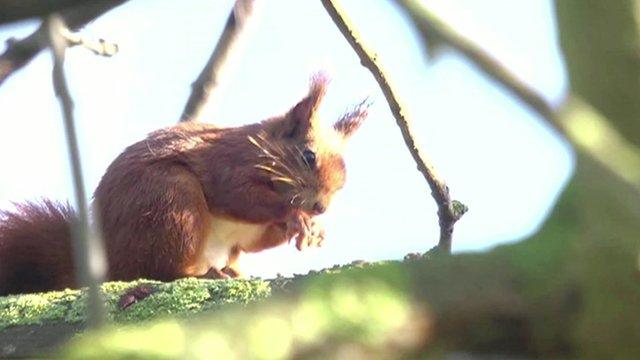Red squirrels 'thriving' in Mersea Island after reintroduction
- Published
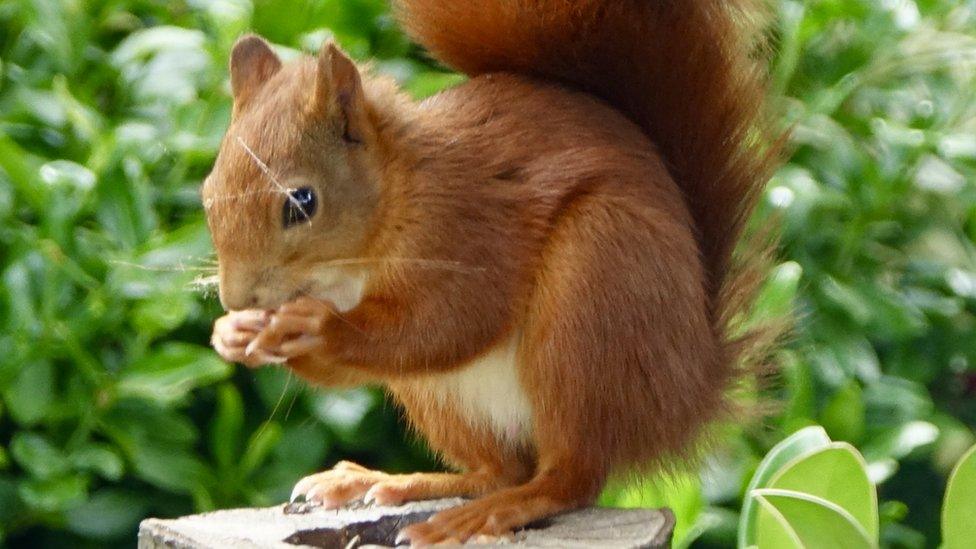
Anne Scott has taken thousands of pictures of the red squirrels in her garden
Red squirrels have been "thriving" after they were reintroduced to an island community more than a decade ago.
In 2012, residents started a scheme to reintroduce red squirrels to Mersea Island, Essex, and 27 were released.
It is estimated there are now between 50 and 100 red squirrels.
David and Anne Scott said squirrels had been visiting their garden for about seven years and thought "the population has thrived".
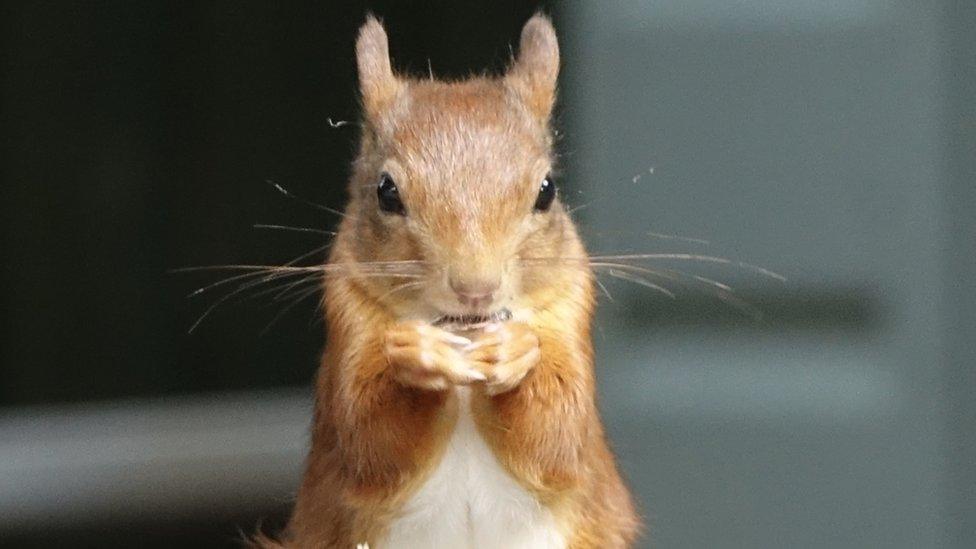
The couple said they first spotted the squirrels in their garden abut seven years ago
Mr Scott, 74, said: "I am delighted, it is better than having a television".
He said people came to their house, hoping to catch a glimpse of the squirrels.
"All we do is sit in the lounge and look out of the window and we get the squirrels coming right up to the other side of the glass.
"We tend to forget what a privilege it is, as we see them everyday."
The couple have lived on Mersea for the past 10 years and were "delighted" squirrels were at ease in their garden.
The red squirrels have been visiting the couple's home for about seven years and Mrs Scott has taken thousands of pictures of them.
She regularly leaves a variety of tasty snacks in the garden for the animals, including hazelnuts and banana chips.
Members of the Mersea Island Red Squirrels group helped re-introduce the squirrels.
Volunteer Chris Burr said: "It has been a success, they have successfully bred across the island."
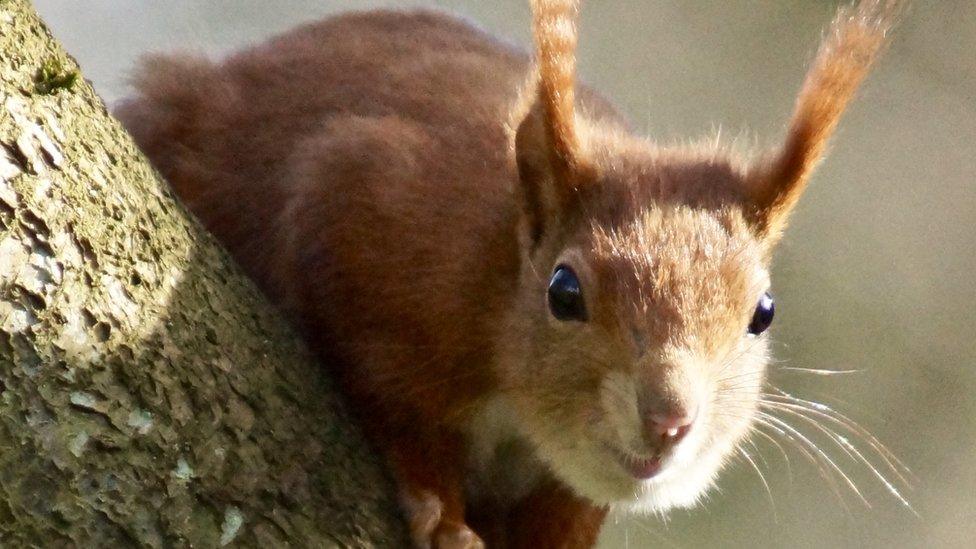
The couple often leave little snacks for the red squirrels visiting their garden
He added Mersea had been free of grey squirrels which made it an ideal place to re-introduce the native red variety.
"We saw it as a good location to have them in a natural habitat.
"We were inspired by the knowledge that there are other surviving island populations of red squirrels on other islands such as the Isle of Wight, Brownsea Island near Poole and Anglesey in Wales.
"After just over 10 years, Mersea has proven itself to be a very good location for establishing a self-sustaining population of native red squirrels," he said.

Follow East of England news on Facebook, external, Instagram, external and X, external. Got a story? Email eastofenglandnews@bbc.co.uk, external or WhatsApp 0800 169 1830
- Published15 March 2024
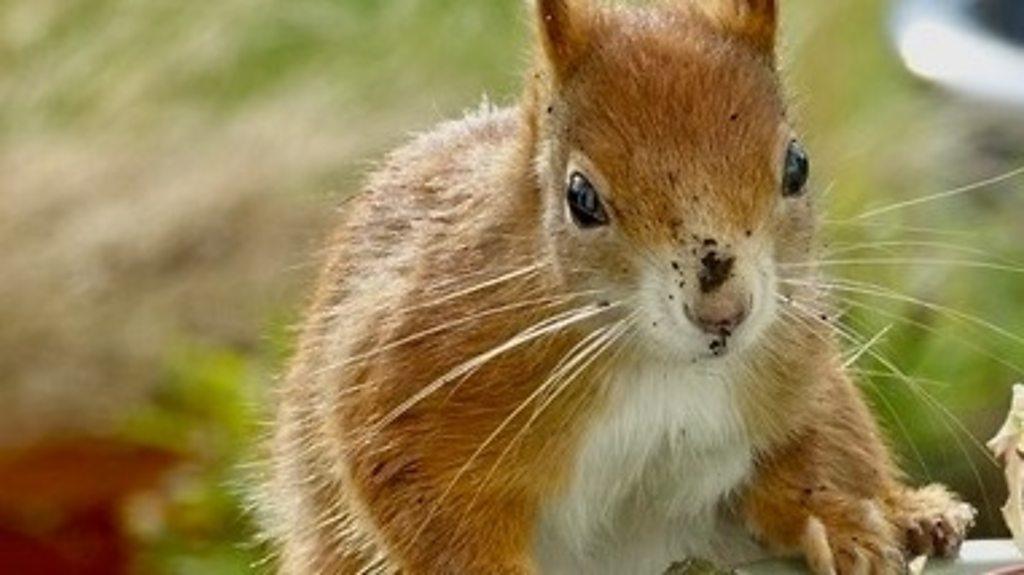
- Published6 February 2015
